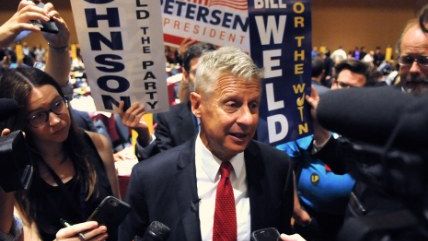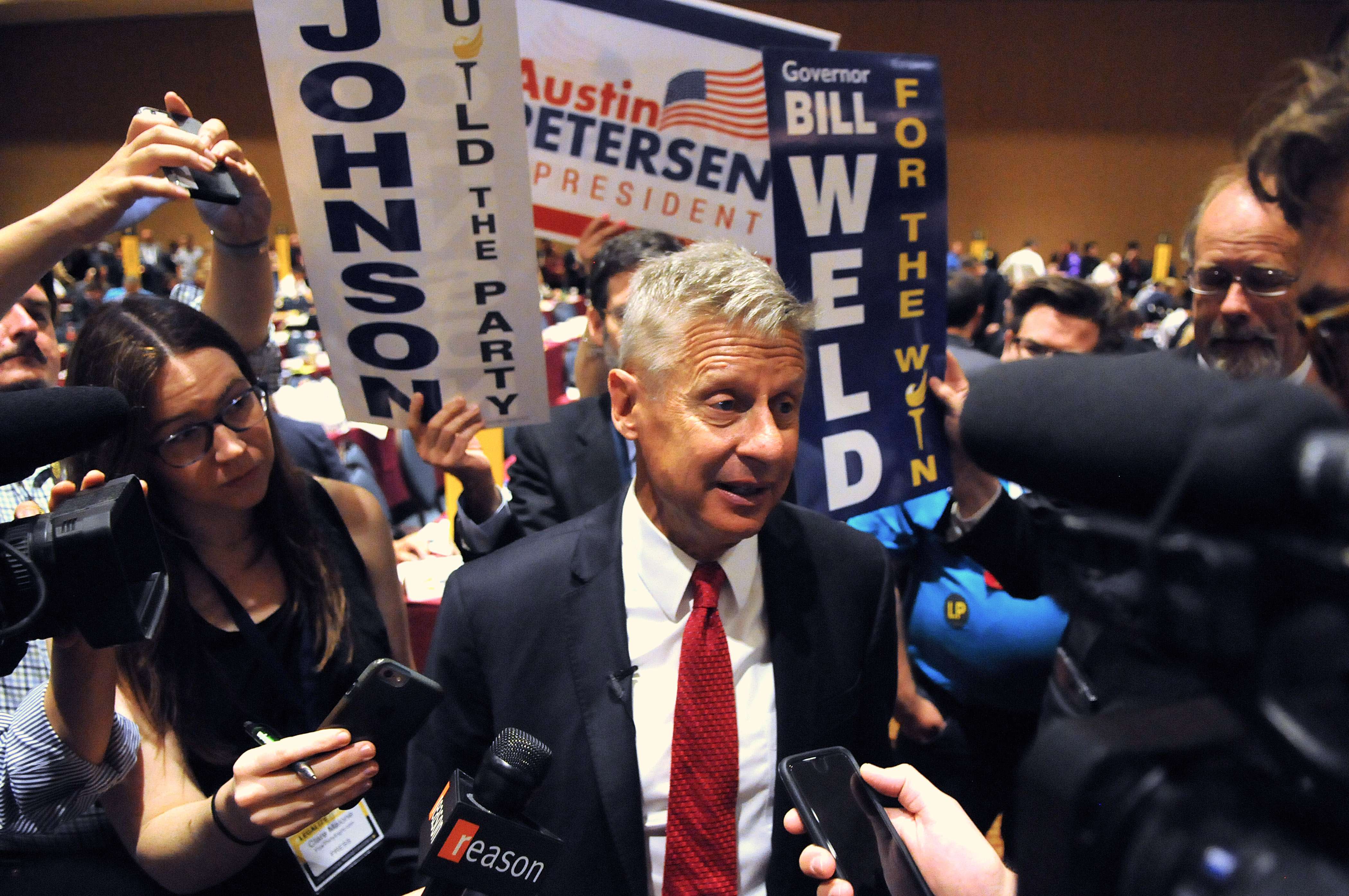What Should CNN Ask Gary Johnson and William Weld in Primetime Interview?
Libertarians are getting the chance to make their case to the voting public.


Wednesday night CNN will be giving Libertarian Party candidates Gary Johnson and William Weld the same "town hall" treatment they gave the candidates from the Democratic and Republican parties during the primaries. CNN even has that absurd countdown clock ticking down right now during its broadcasts to let viewers know it's coming.
Because it's a town hall, a lot of questions will be coming from the "audience," but it's still worth exploring what would be good questions for Johnson and Weld when discussing libertarian philosophy to a general political crowd. One of the awkward but unavoidable issues of the Libertarian Party debate that aired on C-Span was that the candidates were selling themselves to other libertarians and all that entailed. In that sense it wasn't really that much different from Democratic or Republican primaries, but Johnson and Weld are now operating from a position of representing a third-party philosophy that is not necessarily well-known to average voters and is often misrepresented in the media.
Given the intense dislike of both Hillary Clinton and Donald Trump, a large chunk of voters are pretty thirsty. This is a rare opportunity for Johnson and Weld to sell an alternative philosophy.
Over at The Washington Post, Jennifer Rubin says that Johnson and Weld deserve "real, substantive questions," by which she partly means questions that are of interest to her as a conservative ("You want to legalize marijuana. What about sales to children? Why not heroin?"). This isn't a knock on Rubin over the fact that she's a conservative and not a libertarian, especially on foreign policy. I'm not entirely sure I'd call a question about selling marijuana to children to be either "real" or "substantive," though.
Rather, Rubin's list of questions is interesting in that it indicates somebody thinking about what options are available to a conservative who is examining alternatives to a mercurial, self-absorbed, unmoored Trump. How Johnson answers these questions could move some conservative Republicans more toward Johnson's direction, or scare them away. It's the same sort of ideological mathematical equation libertarians (or any independent) put themselves through when considering voting for a Democrat or Republican. Which polices are most important to me? Which can be compromised in favor of a candidate who is preferable in other ways?
So a thought exercise: Given that the goal of this town hall is to draw attention to these candidates to general voters, not other libertarians, what sorts of questions would you like to see them tackle? Some questions I'd like to see asked, not necessarily because I don't know what he'd say, but rather because these are things people who aren't libertarians might think about when evaluating him as a candidate:
- If you were elected president, you'd likely have a Congress that remains heavily polarized under control of Democrats or Republicans. What do you think you can accomplish with a legislature that likely has little interest in supporting your agenda?
- The non-interventionist foreign policy concerns among libertarians tend to revolve around warnings not having the kind of military actions America has already put together in the Middle East. Rather than talking about what we shouldn't have done, given the environment we have now and the decisions that have already been made, what would you do next?
- Why would you eliminate the Department of Housing and Urban Development? People believe that federal agency is necessary in helping the poor afford places to live. What do you think is likely to happen if that agency were eliminated?
- In a dynamic free trade environment supported by many libertarians, we see industries rise and fall and move elsewhere for any number of reasons. Free market libertarians point out how these shifts are beneficial to our overall way of life because they reduce costs of goods and lead to more innovation and development. But what do we do about those who end up displaced by these shifts, the kind of people who are being drawn to Donald Trump's and Bernie Sanders' "bring the jobs back home" arguments? Does the federal government play a role in helping those people?
Yes, my questions are a bit wordy, I suppose. Feel free to add your own questions in the comments. Who knows, maybe somebody at the town hall will feel inspired and ask on your behalf. Tune into CNN's town hall Wednesday night at 9 p.m. Eastern and then check back in here at Reason for some analysis.
